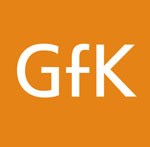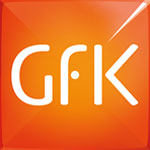
Top stories




According to calculations carried out by GfK Panel Services, eBooks only achieved a 0.5% share of overall book sales in Germany in 2010, registering a total sales volume of €21 million (about R210 million). At present, only 35% of German publishers offer eBooks, although many intend to follow suit before long.
The internet is an important sales channel for media products such as books, music, films, software and games. In 2010, around a quarter of overall sales in these product groups in Germany were generated by online stores. Order a product today and receive it by post the very next day - this distribution model has been experiencing increasing popularity among consumers for many years and has resulted in sales declines for high street retailers. As well as ordering physical products such as CDs and print books, content can also be purchased over the internet in a file format that can be downloaded instantly.
Following years of stagnation, the download market in Germany is now also steadily gathering momentum. According to calculations by GfK Panel Services, downloads were responsible for 5% of overall sales of media products in 2010. The industry generated sales worth €417 million (about 4.17 billion) from download purchases of music, audio books, software, games, videos and eBooks, which represents a 54% increase on the prior year.
Significant growth was also recorded for volume sales, with a 42% rise to 98 million files. However, just 5% of the overall download market was attributable to sales of eBooks.
Last year, Germans spent a total of €21 million (about R210 million) on eBooks (not including textbooks and specialist books) and around 2 million electronic books were sold overall. Approximately 540 000 individuals made purchases in 2010, with the typical eBook client being male and aged between 30 and 49 years.
In terms of book genre, fiction titles achieved a high share of 60%, while the sales share of this genre in print book copies only comprised 48%. Self-help books also recorded higher popularity in the form of eBooks than as print books, with sales shares of 24% and 15% respectively. In contrast, travel literature and books for children and young adults were significantly less popular in the eBook format.
eBooks have become very well known in Germany. In January 2011, 62% of Germans over the age of 10 stated that they had heard of eBooks, which equates to around 39.5 million individuals. In the prior year, only 49% declared this, and the figure was even lower in 2009, at 35%. However, at present, 54% of Germans say that although they have heard of eBooks, they know nothing or very little about them. Of those who have actually purchased eBooks, almost half feel they are not very well informed.
Providers clearly still need to greatly improve the information they provide. A recent survey conducted among publishers and book retailers by GfK Panel Services on behalf of the Börsenverein des Deutschen Buchhandels (German Book Traders' Association) showed that 35% of publishers currently include eBooks in their range. A further 18% intend to introduce eBooks this year, and an additional 7% are planning to do so in 2012. Looking at just the major publishers, the share of those who already offer eBooks stands at 67%.
The potential for eBooks is currently rising markedly and is likely to increase further as more German titles become available. At present, around 9 million Germans are interested in eBooks, whereas this figure was only approximately 7 million in the prior year. According to those consumers who have heard of the eBook, the electronic format offers a series of advantages. Almost 60% consider eBooks to be more environmentally friendly than print books, and 56% believe that eBooks can be offered at a lower price. In addition, nearly half of respondents think they are a good solution to limited space in the home and 40% consider them modern and the future of reading.
However, it is not expected that the electronic book will become a real threat to print books in the foreseeable future: at the moment, 78% of Germans state that they do not wish to read books on a screen. Nevertheless, the fact that, in 2009, a higher proportion of respondents (83%) said the same demonstrates that there is potential for this to change.
The analysis is based on findings from GfK Media*Scope, which continuously surveys 20 000 consumers in Germany about their media market purchases (music, games, cinema, videos, books). The results are used to generate projections for the whole German population over the age of ten. In January 2009, 2010 and 2011, 10 000 people were interviewed in an additional ad hoc survey on the topic of the eBook.

The GfK Association was established in 1934 as a non-profit organization for the promotion of market research. Its membership consists of approximately 600 companies and individuals. The purpose of the Association is to develop innovative research methods in close cooperation with academic institutions, to promote the training and further education of market researchers, to observe the structures and developments in society, the economy and politics that play a key role in private consumption, and to research their effects on consumers. Survey results are made available to the membership. The GfK Association is a shareholder in GfK SE.
Go to: http://www.gfk.com